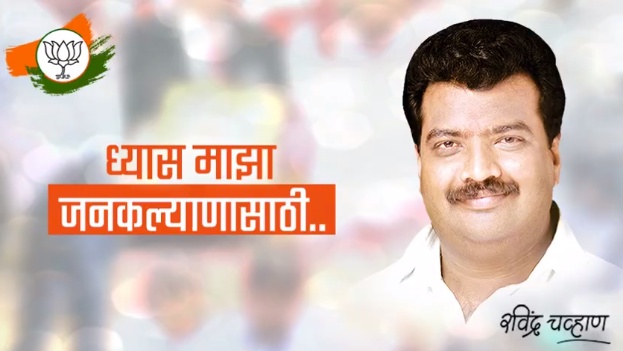Across Maharashtra, gleaming highways snake through vibrant landscapes, promising swift journeys and economic prosperity. Yet, amidst the asphalt arteries, a silent crisis unfolds the dire lack of toilets, particularly for women, leaving travellers grappling with basic sanitation needs. This incongruity lies at the heart of Ravindra Chavan, the Public Works Department Minister's, vision for economic development – can infrastructure advancements coexist with human necessities?
Chavan, acknowledging the public outcry, vows to revive the 2018 proposal for highway toilet construction. In his words, "Just announcing or constructing the toilets will not help. It has to be fully functional with water facilities." This echoes the despair of travellers like Srinivas Rao, who finds Karnataka's facilities far superior to Maharashtra's.
The minister's promise sparks a vital question: is this merely a reactive measure, or a genuine commitment to inclusive development? The challenge lies not just in building, but in sustaining. Proper water supply, maintenance, and accessibility for women are crucial elements that often fall by the wayside in grand infrastructure plans.
Chavan's vision seems to acknowledge this. The focus on dedicated spaces, functionality, and a dedicated policy indicates a potential shift towards holistic planning. The proposed meeting in September and the target of operational toilets by month-end suggest a sense of urgency, but scepticism lingers.
From Past Proposals to Present Action: Reviving the Highway Toilet Policy
In a noteworthy move, the Maharashtra government, led by Public Works Department Minister Ravindra Chavan, is set to reinvigorate the proposal for constructing toilet facilities along highways. This initiative responds to the long-standing grievances of travellers who have been facing challenges in accessing clean and accessible toilet facilities during their journeys. The absence of such amenities, particularly for women, has prompted complaints and underscored the need for a robust infrastructure upgrade.
Minister Ravindra Chavan acknowledges the persistent complaints and is determined to translate promises into action. The proposal initially suggested in 2018, is now slated for revival, with the commitment to making it fully operational. The envisioned 'highway toilet policy' aims not only to construct toilets but also to ensure their functionality, including adequate water facilities. A dedicated meeting in September is on the horizon, with plans to clear the proposal by month-end, marking a significant stride in infrastructure development.
Strategic Locations and Operational Feasibility
To make this initiative feasible, the government plans to utilize PWD department-owned land strategically positioned at 200 locations across the state. Emphasizing functionality, officials stress the importance of ensuring that these facilities have sufficient water supply and are well-maintained. The highway toilet policy aligns with the broader vision of facilitating convenient and hygienic travel experiences for all road users.
Tourist Perspectives: Bridging the Gap with Neighboring States
Imagine hurtling down Maharashtra's highways, the wind whipping through your hair as breathtaking landscapes unfurl before you. But a sudden pit stop isn't for scenic vistas - it's for the desperate search for a decent toilet, particularly for women. This jarring reality, a stark contrast to neighbouring Karnataka's well-maintained facilities, has plagued both commuters and tourists for far too long.
Enter Public Works Department Minister Ravindra Chavan, vowing to breathe life into a long-dormant proposal: a comprehensive network of highway toilets across the state. This isn't just about convenience; it's about dignity, hygiene, and empowering women travellers. Chavan's vision aims to transform Maharashtra's infrastructure, bridging the gap with its neighbours and setting a new standard for excellence.
The initiative doesn't stop at mere construction. Cleanliness and accessibility are king, with dedicated spaces, proper water supply, and functionality taking centre stage. The proposed highway toilet policy suggests a shift towards holistic planning, one that recognizes that a restroom isn't just a brick-and-mortar structure, but a vital link in the chain of a positive travel experience.
Beyond catering to residents, this move holds immense potential for tourism. Imagine visitors praising Maharashtra's clean, well-maintained facilities, adding another feather to the state's cap and attracting more travellers. But the key lies in execution. Promises must translate into action, with transparent progress reports and community engagement ensuring these facilities don't become desolate ruins along the highways.
Chavan's vision, if realized, has the power to do more than just flush away a sanitation issue. It can revitalize tourism, empower women, and elevate Maharashtra's infrastructure to a whole new level. But the road ahead is long, paved with the need for accountability, transparency, and unwavering commitment. Can Chavan navigate this road and transform his vision into a reality that shines as brightly as the open highways themselves? Only time will tell, but one thing is certain: the journey towards a Maharashtra with clean, accessible highway toilets for all has officially begun.
Looking Ahead: A Vision for Economic Development
Ravindra Chavan's commitment to addressing the essential needs of travellers reflects a broader vision for economic development. Accessible and well-maintained highway facilities contribute not only to the convenience and well-being of the public but also play a crucial role in fostering tourism and economic growth. As the proposal moves forward, Maharashtra anticipates a future where its highways are not only well-connected but also equipped with amenities that enhance the overall quality of travel.
In A Nutshell:
Therefore, Chavan's vision must prioritize accountability and transparency. Regular progress reports, community engagement, and strict maintenance protocols are essential to prevent these toilets from becoming ghosts along the highways, mocking the very development they are meant to facilitate.
Ultimately, the true measure of Chavan's vision lies not in grand pronouncements, but in the quiet satisfaction of a woman traveler finding a clean, accessible toilet amidst the highway's roar. If Maharashtra's highways can truly become arteries of inclusive progress, then Chavan's vision will transcend mere lip service and translate into a more equitable and dignified journey for all.


No comments yet